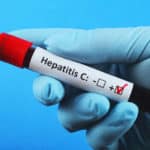3 Ways Insufficient Sleep Fuels Hepatitis C


Fatigue is frequently cited as the top complaint of chronic Hepatitis C sufferers. Although there can be several factors contributing to fatigue, insufficient sleep is a common cause of prolonged tiredness. While insomnia can affect just about anyone, there are several reasons those with Hepatitis C who don’t get enough sleep are at risk of their illness worsening.
An occasional sleepless night is no cause for worry, but too many poor nights of sleep can be harmful. “Think of sleep as the tune-up you need to run smoothly,” says David M. Rapoport, MD, director of the Sleep Medicine Program at NYU Langone Medical Center.
1. Cellular Restoration
Sleep experts teach us that adults need between 7 and 9 hours of sleep every night for optimization of the body’s restorative functions. When it comes to individuals with chronic Hepatitis C, liver cell restoration is crucial for preventing progressive liver damage:
- The Hepatitis C virus launches inflammatory attacks, injuring liver cells with each viral flare.
- During a person’s slumber, liver cell regeneration aims to replace injured areas with new, healthy tissue.
- When liver cell injury outpaces the body’s ability to regenerate healthy liver cells, liver fibrosis and cirrhosis result.
Thus, those with Hepatitis C need a full night’s sleep in order to recover from liver cell damage the virus caused that day.
2. Memory and Immunity
According to Sunita Kumar, MD, co-director of the Center for Sleep Disorders at Loyola University Medical Center, during sleep, you make cells that attack viruses and bacteria. In one study, people who slept at least 8 hours a night were 3 times less likely to come down with a cold than participants who got 7 hours or less. Although Hepatitis C is a different type of virus than the common cold, the fact remains that your body manufactures substances that boost immunity during sleep.
More than a century ago, scientists found that sleep is necessary for the retention of memories. Later, that understanding led to studies highlighting the need for deep sleep to transform recently formed memories into stable, long-term memories. In a 2015 article in Trends in Neurosciences, researchers proposed that deep sleep may also strengthen immunological memories of previously encountered pathogens:
- The immune system “remembers” an encounter with a bacteria or virus by collecting fragments of the pathogen to create memory T cells.
- Memory T cells gather information about the pathogen in an effort to generate an immunological response to that pathogen.
- Studies in humans have shown that long-term increases in memory T cells are associated with deep sleep on the nights after vaccination.
- This supports the view that deep sleep contributes to the formation of long-term memories of abstract, generalized information, which supports immunological response.
Understanding the physiological interplay between deep sleep and memory T cells and immune response is still in its infancy; however, the potential for deep sleep to strengthen your body’s defenses against Hepatitis C is valid. In fact, receiving a full 7 to 9 hours of nightly sleep (that includes deep sleep) might be the reason that an estimated 15% of those infected with Hepatitis C are able to clear this virus from their body naturally.
Thus, getting a full night’s sleep can help your immune system better battle Hepatitis C.
3. Inflammation
The connection between insufficient sleep and inflammation also clarifies why sleep is so valuable to those with chronic Hepatitis C. The Hepatitis C virus causes inflammation in the liver, which eventually leads to liver cell injury.
- As published in the September 2008 issue of Biological Psychiatry, researchers reported that losing sleep for even part of one night could trigger the key cellular pathway that produces tissue-damaging inflammation.
- As published in the July 2016 issue of Biological Psychiatry, researchers analyzed 72 studies that studied the impact of sleep problems on markers of inflammation. They found that sleep disturbance was associated with higher levels of C-reactive protein and interleukin-6. Both C-reactive protein and interleukin-6 can indicate inflammation in the liver.
- As published in the November 2016 edition of Cancer Cell, researchers found that persistent sleep deprivation in mice causes liver disease and eventually leads to liver cancer. Their study demonstrated that normal liver function was severely disrupted in jet-lagged mice. The subjects acquired nonalcoholic fatty liver disease and experienced severe liver inflammation prior to developing liver cancer.
The mechanism explaining the link between poor sleep and inflammation is not yet clear. Nonetheless, it is obvious that insufficient sleep can accelerate inflammation in your liver – a route that will definitely worsen the course of Hepatitis C infection.
Besides being one of the main causes of fatigue, insufficient sleep puts your body at risk for declining health. Implications of not getting enough sleep (especially deep sleep) include a reduction in liver cell regeneration, immune response decline, and increased levels of inflammation. Therefore, when considering lifestyle changes that could improve the outlook of a liver with Hepatitis C, prioritize the need to get 7 to 9 hours of sleep each and every night. Find out 5 tips to improve your sleep if you have Hepatitis C.
https://www.everydayhealth.com/sleep/how-sleep-heals-the-body.aspx, How Sleep Heals the Body, Jennifer Acosta Scott, Retrieved February 7, 2018, Ziff Davis, LLC, 2018.
http://hcvadvocate.org/hepatitis/factsheets_pdf/Sleep.pdf, HCSP Fact Sheet – Sleep, Lucinda K. Porter, RN, Retrieved February 6, 2018, hcvadvocate, February 2018.
http://www.biologicalpsychiatryjournal.com/article/S0006-3223(15)00437-0/abstract, Sleep Disturbance, Sleep Duration, and Inflammation: A Systematic Review and Meta-Analysis of Cohort Studies and Experimental Sleep Deprivation, MR Irwin, et al, Retrieved February 7, 2018, Biological Psychiatry, July 2016.
http://www.cell.com/cancer-cell/fulltext/S1535-6108(16)30494-9, Circadian Homeostasis of Liver Metabolism Suppresses Hepatocarcinogenesis, Nicole M. Kettner, et al, Retrieved February 7, 2018, Cancer Cell, November 2016.
http://www.cell.com/trends/neurosciences/fulltext/S0166-2236(15)00174-5, System Consolidation During Sleep – A Common Principle Underlying Psychological and Immunological Memory Formation, J. Westermann, et al, Retrieved February 7, 2018, Trends in Neurosciences, October 2015.
https://www.hepatitiscentral.com/news/four_rules_to_h/, Four Rules to Help HCV Sufferers Sleep Well, Nicole Cutler, L.Ac., Retrieved February 7, 2018, Hepatitis Central, 2018.
https://www.hepmag.com/article/sleep-key-healthy-liver, Sleep: The Key to a Healthy Liver, Lucinda K. Porter, RN, Retrieved February 7, 2018, Smart + Strong, 2018.
https://www.medicalnewstoday.com/articles/314318.php, Chronic sleep disruption linked to liver cancer, Yella Hewings-Martin, PhD, Retrieved February 7, 2018, Healthline Media, UK, Ltd, 2018.
https://www.sciencedaily.com/releases/2015/09/150929142022.htm, Sleep may strengthen long-term memories in the immune system, Retrieved February 7, 2018, ScienceDaily, 2018.
https://www.webmd.com/a-to-z-guides/discomfort-15/better-sleep/healing-power-sleep?page=1, The Healing Power of Sleep, William Blahd, MD, Retrieved February 7, 2018, WebMD LLC, 2018.
https://www.webmd.com/hepatitis/hep-c-sleep#1, What's the Link Between Hep C and Sleep Problems?, Retrieved February 7, 2018, WebMD LLC, 2018.







